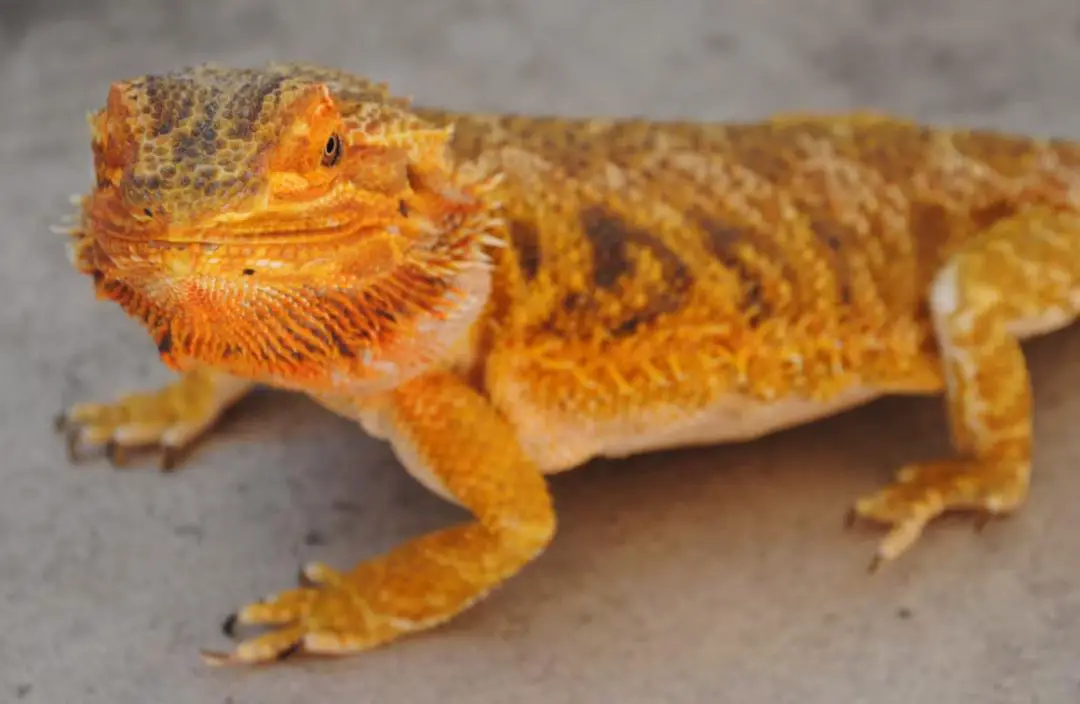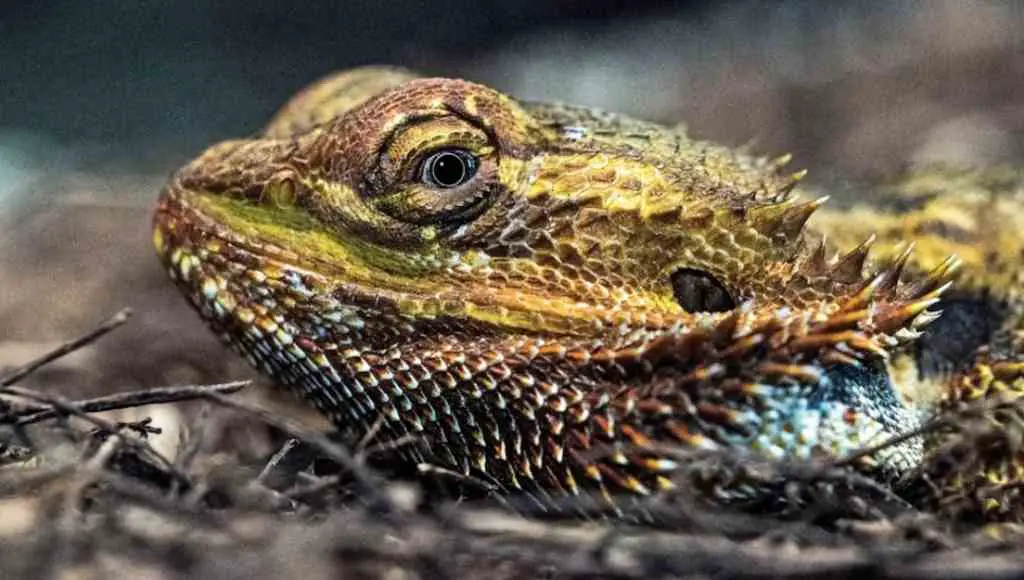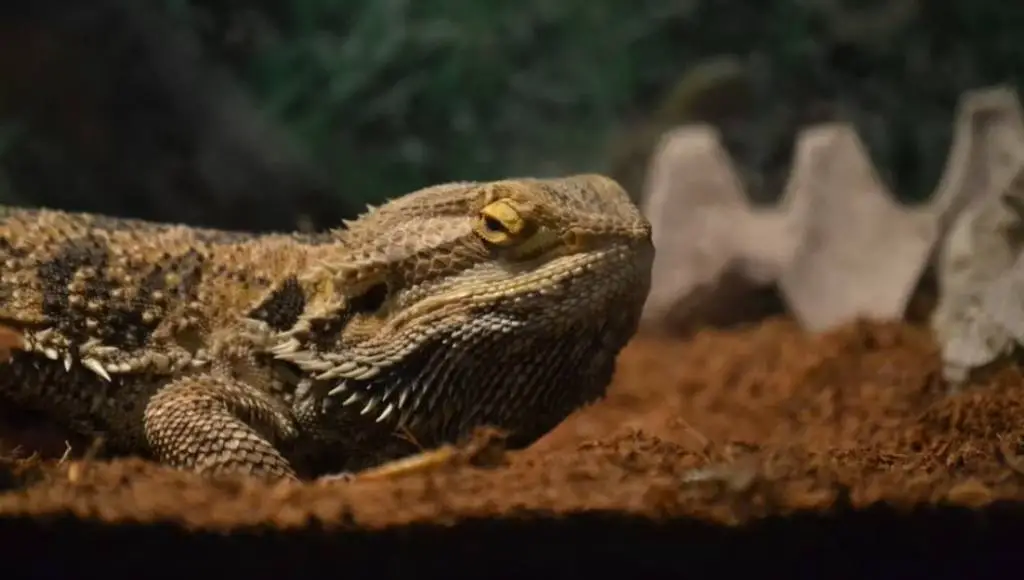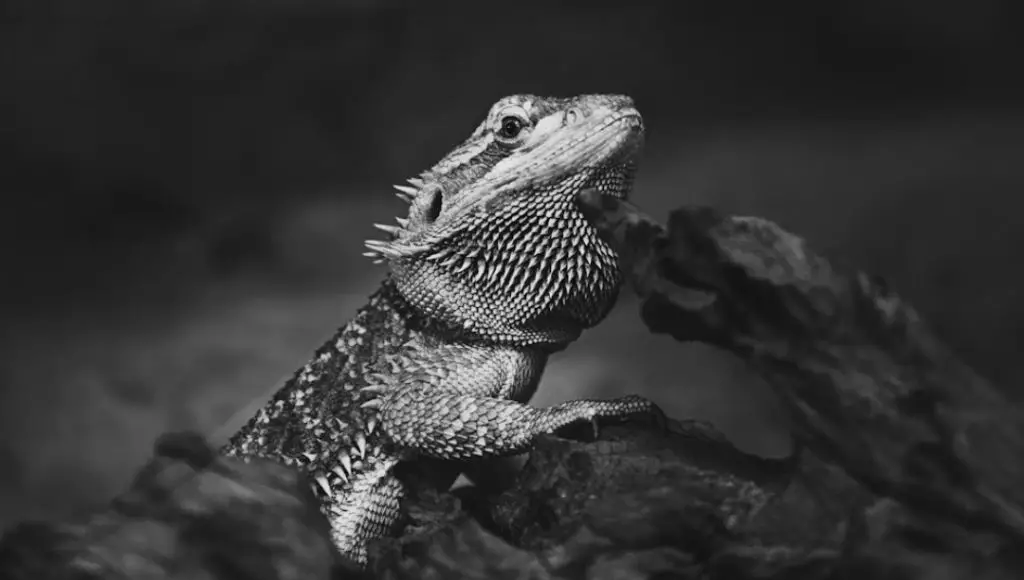8 Factors Affecting Bearded Dragon Lifespan & More

Today, let’s dive into the fascinating world of bearded dragons and talk about a topic that’s on every pet owner’s mind: bearded dragon lifespan.
How long can these scaly companions stick around to brighten our days and warm our hearts?
Buckle up, because we’re about to uncover the secrets behind the bearded dragon’s extraordinary journey through life!
Bearded Dragon Lifespan
Bearded dragons can live anywhere from 5 to 14 years, with an average lifespan of around 10 years in captivity. In the wild, their lifespan is typically shorter, ranging from 5 to 8 years.
Factors such as diet, enclosure, sex, size, species, and breeding can all impact the lifespan of a bearded dragon.
Proper care and husbandry are crucial for ensuring the longevity of these reptiles.
Factors Affecting Bearded Dragon Lifespan

Here are some of the major factors affecting the bearded dragon lifespan:
1. Habitat and Enclosure
Creating a suitable habitat and enclosure for your bearded dragon is essential for its well-being and lifespan.
The enclosure should be spacious enough for your dragon to move around comfortably.
A larger enclosure allows for more exercise and exploration, which contributes to a healthier lifestyle.
Bearded dragons also require a temperature gradient within their enclosure, with a basking spot around 95-105°F (35-40°C) and a cooler side around 75-85°F (24-29°C).
Providing multiple hiding spots, branches, and rocks for climbing and basking will make your dragon feel secure and help simulate its natural environment.
2. Diet and Nutrition
Proper diet and nutrition play a vital role in the longevity of your bearded dragon.
In captivity, they thrive on a varied diet consisting of insects, leafy greens, and occasionally fruits.
Young dragons require more protein and should be fed small insects daily, gradually transitioning to a more plant-based diet as they grow.
Gut-loading insects with nutritious greens before feeding them to your dragon ensures they receive the necessary vitamins and minerals.
Calcium and vitamin D3 supplements are also important to prevent metabolic bone disease.
Avoid feeding your dragon foods that are toxic to them, such as avocado, rhubarb, and certain insects.
3. Temperature and Lighting
Bearded dragons are ectothermic reptiles, meaning they rely on external heat sources to regulate their body temperature.
Maintaining the proper temperature gradient is crucial for their overall health and lifespan.
Ensure that your dragon has access to a basking spot with a temperature around 95-105°F (35-40°C) and a cooler side around 75-85°F (24-29°C).
Ultraviolet-B (UVB) lighting is essential for the synthesis of vitamin D3, which aids in calcium absorption.
Providing a UVB light source for 10-12 hours a day mimics natural sunlight and helps prevent metabolic bone disease.
4. Handling and Stress Levels
Handling your bearded dragon and managing its stress levels are important for its well-being.
While they can become accustomed to gentle handling, it’s crucial to respect their boundaries and not overhandle them, especially during the first few weeks of bringing them home.
Too much stress can lead to health issues and a shortened lifespan.
Minimize sudden loud noises, excessive handling, and overcrowding in the enclosure to ensure a calm and stress-free environment for your dragon.
Providing hiding spots within the enclosure will also help them feel secure and reduce stress.
5. Genetics and Breeding
Just like with any living creature, genetics play a significant role in determining a bearded dragon’s lifespan.
When it comes to breeding, it’s essential to choose healthy parent dragons with good genetic backgrounds.
Breeders who focus on producing robust and genetically diverse offspring can help ensure a longer lifespan for their bearded dragons.
Responsible breeding practices can minimize the risk of genetic disorders or predispositions that might shorten their lifespan.
6. Species and Sex

Different species and sexes of bearded dragons can have varying lifespans.
For example, Pogona vitticeps, also known as the Central Bearded Dragon, is a commonly kept species with an average lifespan of 10 to 12 years.
Other species, such as Pogona henrylawsoni (Rankin’s Dragon) or Pogona minor (Western Bearded Dragon), may have slightly different lifespans.
Additionally, females generally tend to live longer than males.
However, it’s worth noting that individual care and environmental factors can still influence the lifespan of each dragon.
7. Hydration
Maintaining proper hydration is crucial for the well-being and longevity of bearded dragons.
These reptiles originate from arid regions of Australia, where water can be scarce.
Bearded dragons obtain most of their hydration from the food they eat, and they also require a water source for drinking.
Providing a shallow water dish in their habitat allows them to drink and soak, which helps prevent dehydration.
Regularly misting their enclosure can also help maintain humidity levels and support their overall health.
8. Overall Health Status and Veterinary Care
A bearded dragon’s overall health and access to proper veterinary care significantly impact their lifespan.
Regular check-ups with a reptile-savvy veterinarian are essential to monitor their health, detect any potential issues early on, and provide appropriate treatments.
A balanced diet consisting of nutritionally rich insects, vegetables, and occasional fruits is essential to ensure their well-being.
Avoiding excessive amounts of fatty or sugary foods is crucial, as obesity can lead to various health problems that may shorten their lifespan.
Additionally, providing a suitable habitat with proper lighting, heating, and a spacious enclosure that allows for natural behaviors and exercise is vital.
Maintaining appropriate temperature gradients and UVB lighting helps support their metabolic processes, bone health, and overall vitality.
Ways of improving bearded dragon lifespan

Here are some of the most common effective ways of improving bearded dragon lifespan:
1. Provide a spacious and appropriate enclosure: Bearded dragons need plenty of space to explore and move around. Make sure their enclosure is large enough and has the right temperature gradient, UVB lighting, and humidity levels to mimic their natural habitat.
2. Maintain proper temperature and lighting: Bearded dragons are ectothermic, which means they rely on external heat sources to regulate their body temperature. Ensure that the basking area has a temperature gradient between 95-105°F (35-40°C) during the day, and cooler areas around 75-85°F (24-29°C) at night. They also require UVB lighting to synthesize vitamin D3 and absorb calcium.
3. Provide a balanced diet: A healthy diet is crucial for a bearded dragon’s well-being. They are omnivorous, so their diet should consist of a mix of insects, such as crickets and mealworms, as well as a variety of leafy greens, vegetables, and fruits. Calcium and vitamin supplements should also be provided to prevent nutritional deficiencies.
4. Hydration is key: Bearded dragons need access to fresh water at all times. While they may not drink as frequently as other pets, providing a shallow dish of water will help ensure they stay hydrated. Additionally, you can occasionally mist them with water to help with shedding.
5. Regular veterinary check-ups: Just like any other pet, bearded dragons require routine veterinary care. Regular check-ups will help identify any health issues early on and ensure your dragon receives proper treatment and care.
6. Keep their enclosure clean: Regularly clean and sanitize your bearded dragon’s enclosure to prevent the buildup of bacteria and parasites. Remove uneaten food, feces, and shed skin promptly to maintain a clean and healthy environment.
7. Provide mental stimulation: Bearded dragons are intelligent creatures and benefit from mental stimulation. Offer a variety of toys, climbing structures, and hiding spots to keep them entertained and engaged.
8. Avoid overhandling: While bearded dragons can become quite tame and enjoy human interaction, it’s essential to avoid excessive handling, especially during periods of stress or illness. Give them time to rest and relax in their enclosure.
9. Educate yourself: Continuously educate yourself about the proper care and behavior of bearded dragons. Stay updated on any new research, advancements, and best practices to ensure you’re providing the best possible care for your scaly friend.
Remember, each bearded dragon is unique, so it’s essential to monitor their behavior, appetite, and overall well-being regularly.
By following these tips, providing a suitable environment, and showering them with love, you can maximize their lifespan and enjoy many happy years with your bearded dragon companion.
FAQs
How long do Bearded Dragons typically live?
Bearded Dragons have an average lifespan of 10 to 15 years when properly cared for. However, with the right diet, habitat, and veterinary care, some Bearded Dragons have been known to live up to 20 years!
What factors can impact a Bearded Dragon’s lifespan?
Several factors can influence a Bearded Dragon’s lifespan. These include genetics, diet, habitat, temperature, lighting, hygiene, and overall health. Providing a balanced diet, maintaining a suitable habitat, and regular vet check-ups can greatly contribute to a longer lifespan.
Do Bearded Dragons have a shorter lifespan in captivity?
Not necessarily. While it’s true that Bearded Dragons in the wild may face more challenges and predators, those kept in captivity can lead equally long and healthy lives. In fact, captivity offers controlled environments, proper nutrition, and veterinary care, which can positively impact their lifespan.
How can I ensure my Bearded Dragon lives a long and healthy life?
To ensure a long and healthy life for your Bearded Dragon, you should focus on providing a suitable habitat with proper temperature gradients and UVB lighting. Additionally, a well-balanced diet consisting of insects, vegetables, and occasional fruits, along with regular veterinary check-ups, will contribute to your pet’s longevity.
Can Bearded Dragons die prematurely?
Unfortunately, yes. Bearded Dragons can die prematurely if they are not properly cared for. Neglecting their habitat, providing an inadequate diet, or not addressing health concerns in a timely manner can significantly shorten their lifespan. It’s crucial to educate yourself on their care requirements and provide them with a nurturing environment.
Are there any signs of aging in Bearded Dragons?
As Bearded Dragons age, they may show signs of decreased activity, reduced appetite, and changes in skin texture and color. It’s important to monitor their behavior and consult a reptile veterinarian if you notice any sudden changes or concerns. With proper care and attention, you can help your aging dragon live a comfortable and fulfilling life.
Conclusion
In conclusion, the bearded dragon’s lifespan is an important consideration for any prospective owner. With proper care and attention, these incredible reptiles can live for up to 15 years or more, becoming long-term companions for those willing to provide a suitable environment. So, if you’re ready to embark on a journey with a fascinating and resilient pet, the bearded dragon might just be the perfect match for you!
